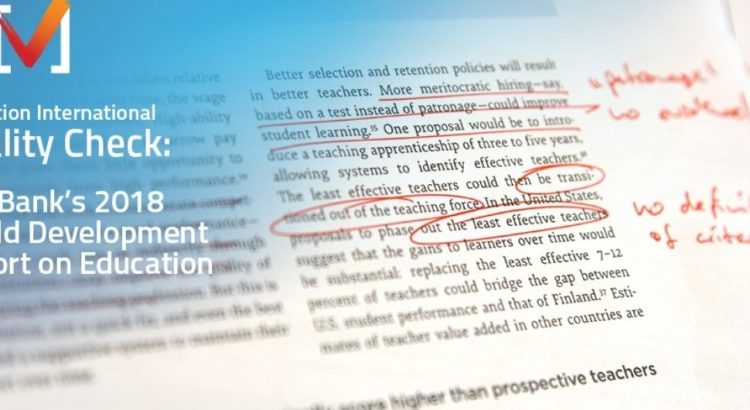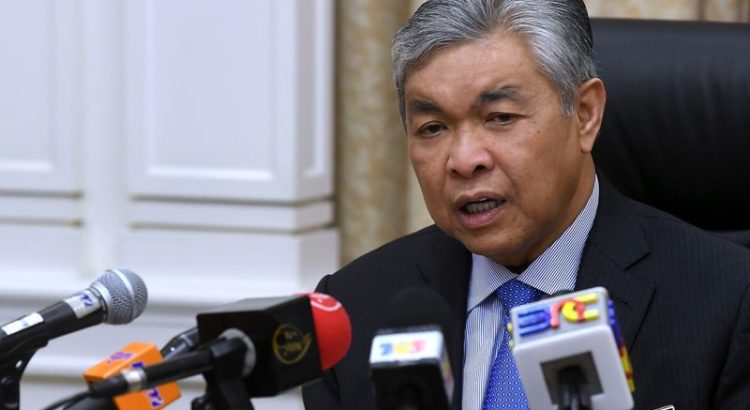Prensa Internacional de la Educación
Resumen: Justo antes de las Reuniones de Primavera del Banco Mundial, la Internacional de la Educación está lanzando una publicación que reúne múltiples voces de todo el mundo para proporcionar un Chequeo de la realidad en el Informe sobre el desarrollo mundial de educación de 2018 del Banco Mundial. El lanzamiento de esta publicación marca el final de la serie de blogs semanales Reality Check del Informe de Desarrollo Mundial (WDR) de la IE que se ha estado ejecutando enwww.worldsofeducation.org durante casi 6 meses. Si bien es importante que el Banco Mundial haya dedicado un tema del WDR a la educación por primera vez, los docentes y académicos del mundo han encontrado algunas deficiencias significativas en su contenido. Esto es aún más difícil ya que la política del Banco Mundial afecta directamente a los educadores a través del asesoramiento sobre políticas a los ministros y la política impuesta a través de préstamos condicional del Banco Mundial. Hay una oportunidad perdida bastante importante en el informe: el Banco debería haber presentado argumentos sólidos sobre cómo cerrar la brecha financiera en educación para cumplir con el ODS 4. De acuerdo con el Informe Global de Monitoreo Educativo, existe una brecha financiera de $ 39 billones por año desde ahora hasta el 2030 en los países de ingresos bajos y medianos. Esta brecha no se aborda en absoluto en el informe. En resumen, el Banco debería haber enfatizado que las prioridades políticas deberían ser determinadas por los gobiernos nacionales en consulta con los maestros y el personal de apoyo educativo que conocen de primera mano las necesidades sobre el terreno para lograr una educación de calidad para todos. David Edwards, Secretario General de la IE, dice en su introducción a la publicación: «Los educadores son los que mejor pueden usar la evaluación para mejorar el aprendizaje. Los educadores pueden proporcionar la evidencia contextual específica que debe informar la reforma de políticas, de lo que funciona y de lo que no funciona en el aula. Y, por lo tanto, los educadores deben tener un lugar en la mesa para guiar la reforma de las políticas. La promesa de la educación no se logrará a menos que se fortalezca y amplíe el diálogo social. Por esta razón, la Internacional de la Educación pide que en materia de educación, el Banco Mundial intenta algo nuevo, da un paso atrás y escucha a la comunidad educativa «. «Verificación de la realidad de la Internacional de la Educación: El Informe sobre el desarrollo mundial de la educación de 2018 del Banco» está disponible aquí: http://go.ei-ie.org/WDR2018RealityCheck
Just ahead of the World Bank Spring Meetings, Education International is launching a publication that brings together multiple voices from around the world to provide a Reality Check on the World Bank’s 2018 World Development Report on education.









 Users Today : 33
Users Today : 33 Total Users : 35460296
Total Users : 35460296 Views Today : 44
Views Today : 44 Total views : 3419012
Total views : 3419012